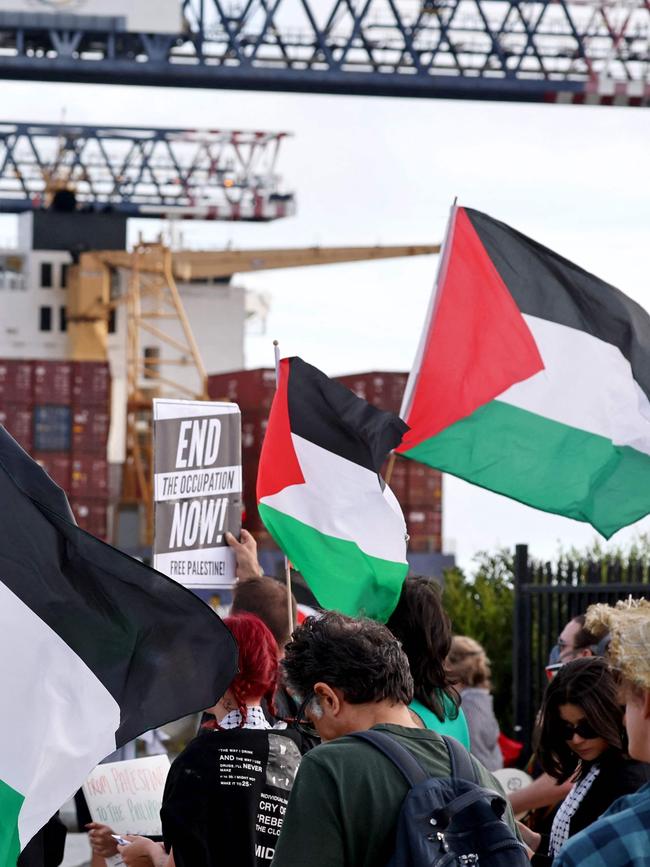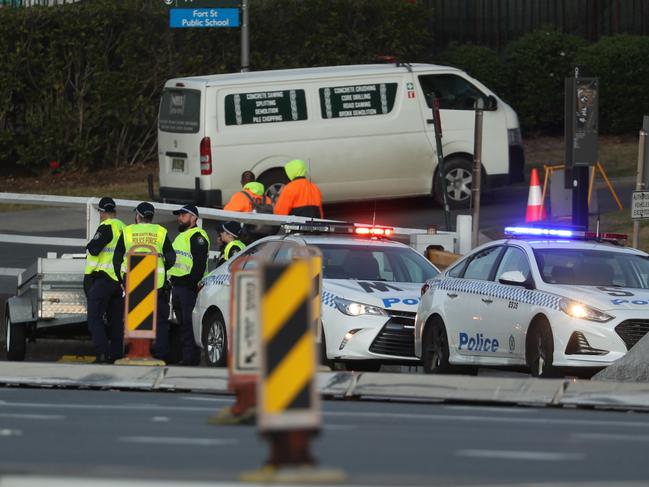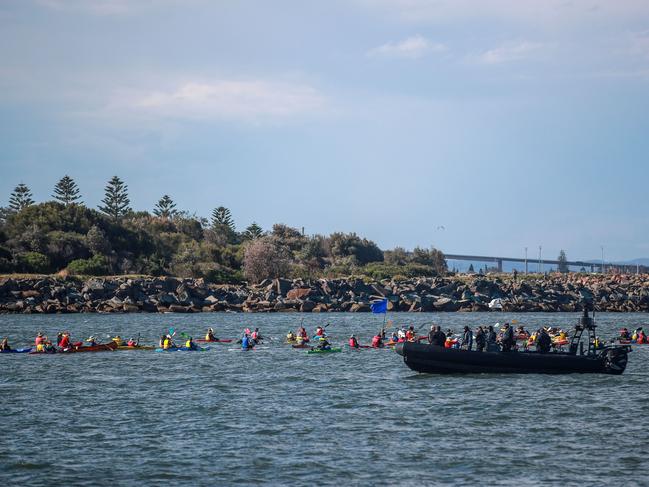Chris Minns responds to Supreme Court’s anti-protest laws ruling
Protesters have been given the green light to block access to major facilities like ports and railway stations in certain circumstances, after the Supreme Court struck out tough new anti-protest laws.
Police & Courts
Don't miss out on the headlines from Police & Courts. Followed categories will be added to My News.
Premier Chris Minns has ruled out redrafting tough anti-protest laws and said he’s confident key parts of the laws ushered in after rolling blockades on major roads and ports can still be used, despite the Supreme Court striking down part of the law on Tuesday.
“The initial advice I’ve got is that police can work with the existing provisions that were not struck down by the Supreme Court and they have to do mainly with mass demonstrations that close down critical infrastructure,” he said.
On Wednesday, protesters were given the green light to block access to major facilities like ports and railway stations in certain circumstances, after the Supreme Court struck out tough new anti-protest laws in a bombshell judgment.
The Supreme Court ruled that certain provisions passed into law last year after a spate of climate protesters blocked ports, roads and railways were invalid because they infringe on “the implied freedom of political communication” in Australia’s constitution.
Mr Minns, who courted controversy from his party colleagues when he supported the introduction of the laws in opposition, said the government was reviewing how it would respond to the Supreme Court.


He also ruled out redrafting legislation to fit around the Supreme Court’s finding, highlighting why the laws were brought in after a series of blockades which largely impacted the world’s largest coal port at Newcastle.
“Now can I just cycle all the way back to the reason for these laws?… people were doing frankly stupid things, putting themselves in extreme danger to make what they termed political protests - hanging from cranes that were located on top of railway lines, chaining themselves to roads with heavy vehicles operating in the vicinity, it would only take a split second for a worker not to see a protest to line on the ground, for example, to see a tragedy take place,” he said.
The new laws imposed maximum fines of $22,000, a two year jail term, or both, for certain protests.
The judgment was delivered after two members of the Knitting Nannas protest group challenged the validity of the new laws – which were passed by the former Coalition government with Labor’s support.
The plaintiffs – Helen Kvelde and Dominique Jacobs – had previously engaged in protest activity around locations like railway stations.

“The plaintiffs both had a history of engaging in protest actions as part of the Knitting Nannas group, including protesting on or near roads, train stations and ports about environmental and climate change issues,” the judgment said.
The judgment found that “environmental protests do constitute political communication”.
Government lawyers argued that “the implied freedom in this matter was ‘slight’ and ‘so slight as to be inconsequential’.”
The court struck out parts of the new laws which made it unlawful for protests which cause “persons attempting to use (a) major facility to be redirected,” and cause “part of” a major facility to be closed.

Other parts of the new laws were not impacted by the judgment, meaning a protest is still illegal if it causes damage to a major facility or “seriously disrupts or obstructs persons attempting to use the major facility”.
It would also be illegal for a protest to entirely close a major facility.
A “major facility” includes railway stations, ports and infrastructure facilities.
The plaintiff’s also argued that changes to the Roads Regulation designating main roads, highways, toll roads and bridges a “major bridge, tunnel or road” should be struck out. That argument was rejected.
The Roads Regulation changes were made to stop protesters blocking traffic on freeways, as occurred in the 2022 Blockade Australia protests.
Premier Chris Minns supported the new laws from Opposition in a captain’s call that angered a number of his left faction MPs.
He stared down a challenge at Labor’s state conference last year, when rebel party members tried to stop Labor supporting the new laws.
A spokeswoman last night said the government was “carefully considering the judgment”.
She said the government was “seeking advice on appeal options or options for legislative reform to ensure that protest activity is appropriately regulated and balances the rights and freedoms of the people of NSW.”
“It would be inappropriate to comment further,” she said.




